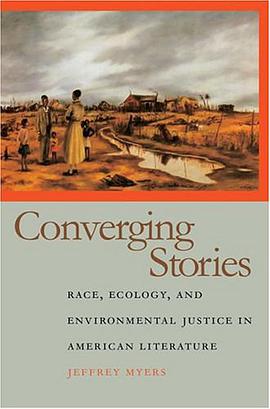

具体描述
In American literature, our discourse on the themes of race and ecology is too narrowly focused on the twentieth century and does not adequately take into account how these themes are interrelated, argues Jeffrey Myers. His new study broadens the field by looking at writings from the nineteenth century. This was an era, Myers reminds us, of renewed violence and oppression against people of color and of unprecedented environmental destruction on a continental scale. Myers focuses particularly on works that engage the notion that white racism and alienation from nature sprang from a common source.Myers first discusses the paradox of Thomas Jefferson's agrarian vision, by which ideas espoused in his "Notes on the State of Virginia" can support either environmental destruction or conservation, a democratic or a racist society. Next, by looking race-critically at Thoreau's "Walden" and "The Maine Woods," then ecocritically at Charles Chesnutt's "The Conjure Woman" and Zitkala-Sa's "Old Indian Legends" and "American Indian Stories," Myers traces the development of a new resistance to racial and ecological hegemony. He concludes by discussing how the antiracist, egalitarian ecocentricity in these earlier writers can be seen in contemporary writer Eddy L. Harris's "Mississippi Solo." Myers's discussion encompasses other authors as well, including Ralph Waldo Emerson, John Muir, and Willa Cather.By looking at works by Native Americans, African Americans, European Americans, and others, and by considering forms of literature beyond the traditional nature essay, Myers expands our conceptions of environmental writing and environmental justice.
作者简介
目录信息
读后感
评分
评分
评分
评分
用户评价
相关图书
本站所有内容均为互联网搜索引擎提供的公开搜索信息,本站不存储任何数据与内容,任何内容与数据均与本站无关,如有需要请联系相关搜索引擎包括但不限于百度,google,bing,sogou 等
© 2025 book.wenda123.org All Rights Reserved. 图书目录大全 版权所有




















